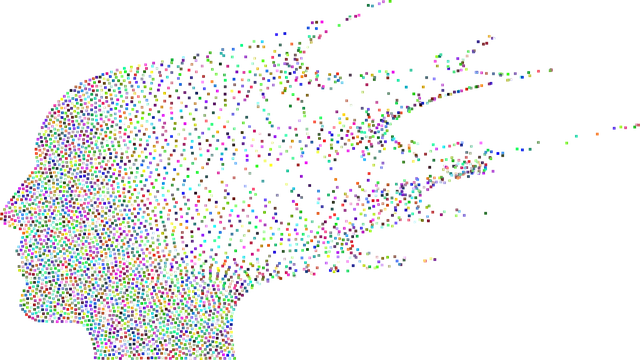Kaiser Permanente Mental Health Locations in Centennial prioritizes holistic well-being through integrated resilience-building exercises based on the RFM (Reach, Frequency, and Motivational) model. Tailored through Cultural Competency Training, these exercises focus on practical stress management techniques, benefiting individuals from diverse backgrounds. By leveraging a community outreach program and collaborating with healthcare providers, administrative staff, and clients, Kaiser Permanente fosters a resilient environment that promotes mental wellness and burnout prevention. The strategic implementation of evidence-based practices and risk assessments ensures tailored programs that build social connections and teach effective coping mechanisms, enhancing the overall health of the Centennial community. Success is evaluated using both quantitative (engagement rates, service utilization) and qualitative (surveys, feedback) KPIs.
“Discover how Kaiser Permanente’s mental health locations in Centennial are pioneering resilience-building initiatives through RFM (Resilience, Flexibility, and Mastery) exercises. This comprehensive guide explores the strategic implementation of these programs, tailored to diverse populations. From understanding the core principles of RFM to identifying key stakeholders and designing customized training, we delve into the process. Additionally, evaluation metrics are outlined to measure the success of these initiatives, ensuring a profound impact on mental health support.”
- Understanding RFM and Resilience Building Exercises: A Comprehensive Overview
- Kaiser Permanente Mental Health Locations Centennial: Setting the Stage for Implementation
- Identifying Key Stakeholders and Their Roles in Resilience Training
- Designing Customized Resilience Programs for Diverse Populations
- Measuring Success: Evaluation Metrics for RFM and Resilience Building Initiatives
Understanding RFM and Resilience Building Exercises: A Comprehensive Overview

Resilience building exercises, often integrated into Mental Health Education Programs Design, have gained prominence in healthcare settings, particularly at Kaiser Permanente mental health locations Centennial. These exercises are designed to enhance individuals’ ability to cope with stress and adversity, fostering a sense of empowerment and well-being. The RFM (Reach, Frequency, and Motivational) model serves as a framework for understanding patient engagement and behavior change.
By utilizing Healthcare Provider Cultural Competency Training methodologies, resilience exercises can be tailored to meet diverse needs, addressing individual and community-level factors that influence mental health. Stress Management techniques form the core of these interventions, teaching participants practical skills to navigate challenging situations. This holistic approach, grounded in evidence-based practices, not only benefits individuals at Kaiser Permanente but also contributes to building stronger, more resilient communities.
Kaiser Permanente Mental Health Locations Centennial: Setting the Stage for Implementation

In the heart of Centennial, Kaiser Permanente Mental Health Locations has been a beacon of hope and resilience for many in the community. This strategic setting serves as an ideal launchpad for implementing innovative practices aimed at burnout prevention and trauma support services. With a focus on holistic well-being, the organization is dedicated to fostering environments that nurture mental health and build resilience among its members and the wider community.
By leveraging resources from their comprehensive Community Outreach Program Implementation, Kaiser Permanente Mental Health Locations Centennial aims to create accessible programs that cater to diverse needs. These initiatives not only aim to prevent burnout but also provide essential Trauma Support Services, ensuring that individuals can navigate life’s challenges with enhanced resilience. Through such efforts, the organization is paving the way for a healthier and more resilient future for all.
Identifying Key Stakeholders and Their Roles in Resilience Training

In implementing resilience-building exercises and RFM (Recovery, Resilience, and Mental Health) initiatives at Kaiser Permanente mental health locations in Centennial, identifying key stakeholders is a critical first step. These include healthcare providers, administrative staff, support personnel, and even clients or patients. Each group plays a unique role in fostering a resilient environment. Healthcare providers, for instance, are on the front lines and directly interact with individuals seeking mental wellness services. They can integrate journaling exercises into their practice, offering guidance that aids in processing emotions and experiences.
Administrative staff can ensure structural support by organizing workshops and training sessions on burnout prevention strategies tailored to the healthcare sector. This might include promoting mindfulness practices or offering counseling services to help providers manage stress and avoid depression. Engaging clients in conversations about mental wellness can also be powerful, encouraging them to share their journeys and insights while ensuring a safe and non-judgmental space for open dialogue. Such collaborative efforts create a holistic approach to resilience building within the Centennial community, reflecting a commitment to overall Mental Wellness Journaling Exercise Guidance and burnout prevention.
Designing Customized Resilience Programs for Diverse Populations

At Kaiser Permanente mental health locations Centennial, designing customized resilience programs is a nuanced process that recognizes the diverse needs of various populations. Mental health professionals must consider factors such as age, cultural background, and pre-existing conditions when tailoring interventions to enhance resilience. A one-size-fits-all approach rarely yields optimal results; instead, programs should be adaptable to address specific challenges while leveraging individual strengths.
This tailored approach involves integrating evidence-based practices like Social Skills Training and Depression Prevention strategies into the fabric of the program. A thorough Risk Assessment for Mental Health Professionals guides the development of targeted interventions that foster resilience in at-risk individuals. By focusing on building social connections, teaching coping mechanisms, and promoting positive mental health habits, these programs aim to create a supportive environment where participants can develop the tools needed to navigate life’s challenges effectively.
Measuring Success: Evaluation Metrics for RFM and Resilience Building Initiatives

Evaluating the success of RFM (Relational, Functional, and Mental) initiatives is paramount to understanding their impact on resilience building within Kaiser Permanente mental health locations in Centennial. Key performance indicators (KPIs) should encompass both quantitative and qualitative measures. Quantitative metrics could include tracking client engagement rates in RFM programs, such as attendance at group sessions and completion of individual therapy modules, over a defined period. Changes in service utilization before and after the initiatives are also valuable indicators, demonstrating shifts in the frequency and intensity of care required.
Qualitative assessments should delve into clients’ self-reported improvements in coping skills development and mood management. Surveys and feedback forms can gather insights into their experiences with various programs, including Mental Wellness Coaching Programs Development. This data provides a holistic view of participants’ mental wellness coaching program satisfaction, offering valuable context to quantitative findings and highlighting areas for refinement or expansion, particularly when compared across different Kaiser Permanente locations in Centennial.
The implementation of RFM and resilience-building exercises, as demonstrated by Kaiser Permanente’s initiative at its Mental Health Locations in Centennial, offers a promising approach to enhancing community well-being. By engaging diverse populations through customized programs, organizations can foster resilience and improve mental health outcomes. This comprehensive strategy, backed by careful evaluation metrics, ensures that resources are allocated effectively, making it a valuable model for communities worldwide seeking to build collective resilience.






